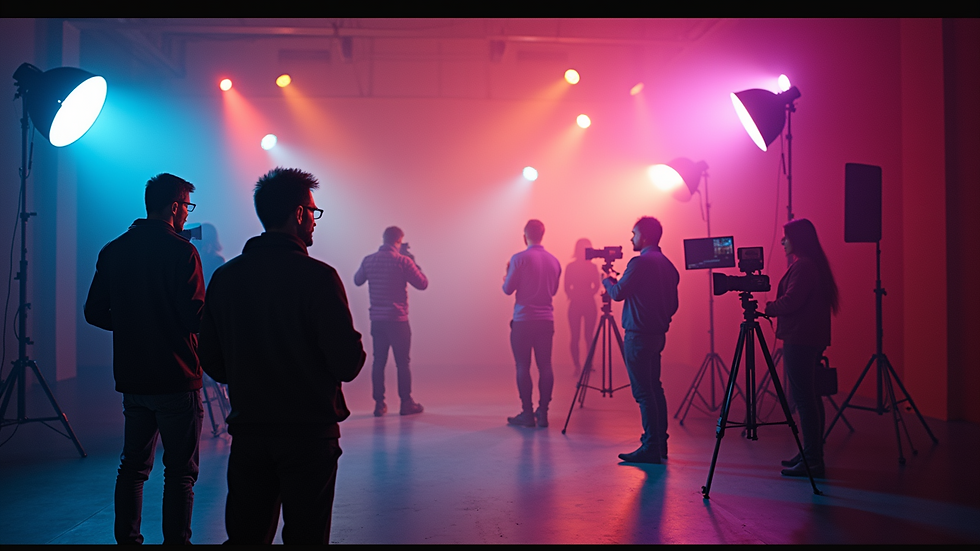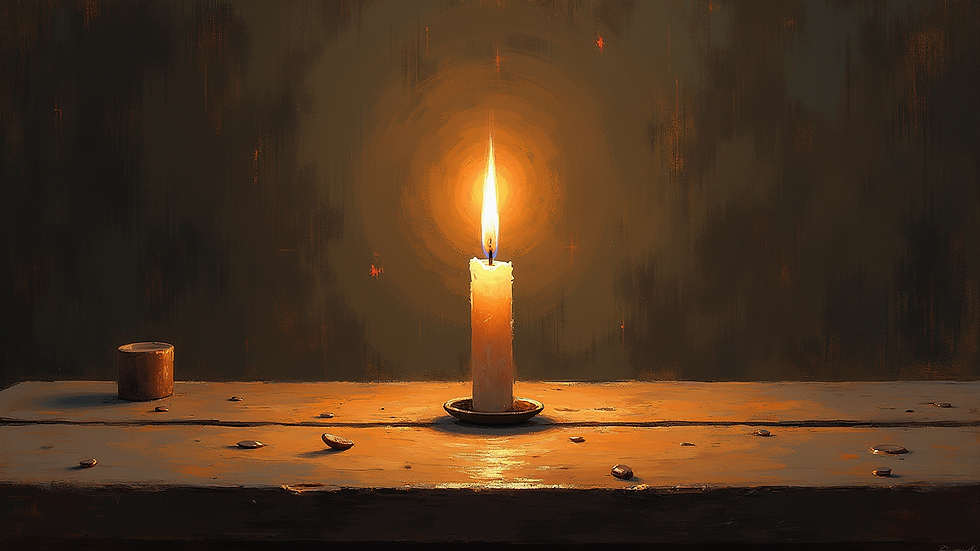Jumpstart Your TV Production Journey
- PsychicUnderLord (Psychic)

- Aug 14, 2025
- 5 min read
Television production is an exciting field that blends creativity, technology, and storytelling. If you've ever watched a show and wondered how it all comes together, you're in the right place. This guide will help you navigate the exhilarating world of TV production, whether you want to produce your own show, work behind the scenes, or simply understand how your favorite programs come to life.
In this post, we will dive into the essential elements of TV production, the various roles involved, and practical steps to launch your journey. So, grab your notepad, and let’s jump in!
Understanding TV Production
TV production is a multi-step process that goes from pre-production to post-production. Each stage is essential in bringing a television show to life.
Pre-Production
Pre-production is all about planning. This stage sets the groundwork for the entire project.
During pre-production, you will need to:
Develop a Concept: What is your show about? For example, if you want to create a cooking show, consider focusing on unique cultural cuisines or quick meals for busy adults.
Write a Script: A structured script guides the production. For instance, many popular shows spend extensive time perfecting their scripts; HBO’s "Game of Thrones" reportedly went through multiple drafts, showing how crucial this step can be.
Create a Budget: Determine your overall costs. According to industry standards, a reality show might average around $500,000 per episode, while scripted dramas can go beyond $2 million per episode.
Assemble a Team: Identify key players like directors, producers, and crew. Successful teams often start small, with friends or classmates, before expanding as the project grows.
Production
Production is where the plan comes together through filming.
Key aspects of production include:
Setting Up: This involves preparing the set, lighting, and sound. For instance, a single day of shooting often requires 8-12 hours of setup time to get everything just right.
Filming: Capture scenes according to the script. A typical TV episode can require several takes to get a perfect shot.
Directing: The director ensures creative vision. Consider how directors like Ava DuVernay bring unique styles that shape the final product.
Post-Production
Post-production transforms raw footage into the finished show.
Important tasks during post-production include:
Editing: Editors cut and arrange footage to tell a cohesive story. It’s fascinating to note that for every minute of finished television content, approximately 12-15 hours of editing time could be required.
Sound Design: Adding music and effects enhances the viewer's experience. According to studies, the right sound effects can elevate a scene's emotional impact by up to 20%.
Color Correction: Adjust colors for consistency and visual appeal. This step can change the mood of a scene drastically.
Final Review: This is the last step to ensure everything is polished and ready for airing, which can make or break an episode's reception.
Key Roles in TV Production
Understanding key positions in TV production is essential for anyone looking to get involved. Here are some critical roles:
Producer
The producer oversees the entire production process. They manage budgets and coordinate between departments. Producers must also ensure the project stays on schedule.
Director
The director brings creativity to life. They interpret scripts and direct actors and crew, crafting the show’s overall look. For example, directors like Ryan Murphy have created iconic shows, emphasizing how a strong director can elevate a project.
Writer
Writers create scripts that form the foundation of any show. They develop characters and storylines, a role that often requires immense creativity and dedication.
Cinematographer
The cinematographer captures visual elements. They work closely with directors to achieve the desired aesthetic. Being skilled in camera work can greatly influence how a story resonates with viewers.
Editor
Editors weave footage into a complete narrative. They play a critical role in pacing and storytelling, significantly affecting audience engagement.
Getting Started in TV Production
Now that you have a foundational understanding of TV production, let's explore ways to start your journey.
1. Educate Yourself
The first step to entering the world of TV production is education. Here are a few options:
Formal Education: Enroll in a film or television production program at a local college or university. Some programs, like NYU's Tisch School of the Arts, are renowned for their contributions to the industry.
Online Courses: Explore platforms like Coursera or MasterClass for courses on screenwriting, directing, and editing.
Books and Resources: Read books and articles about TV production. Understanding industry practices can enhance your approach.
2. Gain Experience
Experience is priceless in TV production. Consider these approaches:
Internships: Seek internships with production companies or networks. This provides hands-on experience and industry connections. According to a survey, nearly 80% of entertainment professionals credit internships for their first job.
Volunteer: Join local film projects, community events, or student films. Doing this builds your portfolio and gives you practical skills.
Create Your Own Content: Develop videos, short films, or web series. This not only showcases your talent but also develops your skills.
3. Build a Network
Networking is crucial in the entertainment world. Here are tips for building your connections:
Attend Industry Events: Join film festivals, workshops, and networking events. These venues are prime opportunities to meet industry professionals.
Join Online Communities: Engage with fellow aspiring producers on social media platforms and forums.
Connect with Mentors: Seek mentors who can guide you through your career. Having someone experienced can provide invaluable insight.
4. Develop Your Skills
Continuously hone your skills. Focus on:
Technical Skills: Understand cameras, lighting, and sound equipment. Being well-versed in these tools enhances production quality.
Creative Skills: Improve your storytelling, whether through writing or directing. Creativity drives successful TV production.
Project Management: Learn budgeting, scheduling, and team coordination. Strong organizational skills can significantly enhance production efficiency.
5. Stay Informed
Stay updated about industry trends and technologies:
Follow Industry News: Subscribe to publications and blogs to keep up with developments.
Watch a Variety of Shows: Analyzing diverse genres helps you understand what works.
Learn from Others: Study successful producers and directors to gain insights into their processes and unique approaches.
The Importance of Passion
Passion drives success in TV production. It ignites creativity and motivates you to overcome challenges. If you have a genuine love for storytelling and television, it will reflect in your work. Embrace your enthusiasm and let it lead you on your journey.
Your Path Awaits
Starting a career in TV production promises an exciting adventure full of creativity. By understanding the production process and familiarizing yourself with essential roles, you're on the right track. Remember, it may be a challenging journey, but with commitment and a willingness to learn, you can make your dreams come true. So, grab your camera, gather your team, and start creating the next great television show!






Comments